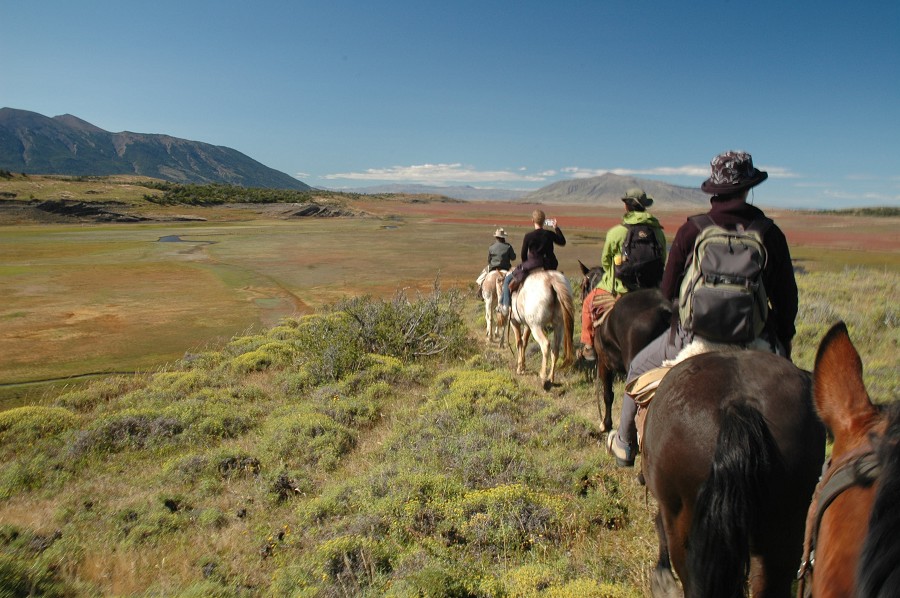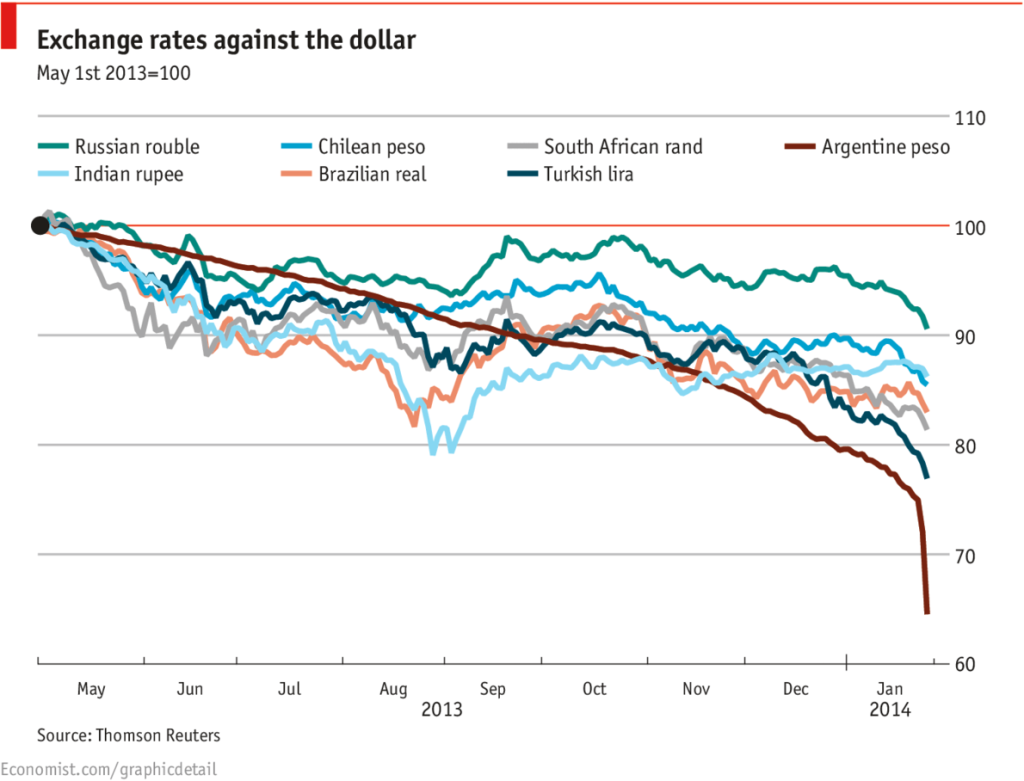
With so much of the world’s attention focused on Russia recently (both due to the Olympics, economic instability and Putin’s authoritarian security state – not to mention an ongoing (at least quasi) civil war in Ukraine) -Â an Economist article on a very different part of the world – Argentina – caught my eye recently and got me thinking both about a place I personally love and the interconnected nature of global socio-economic realities.
Obviously, Argentina is a classically beautiful place in many senses: its culture presents a spectacular blend of Latin American, Italian, Spanish, Brazilian/Portuguese, and German influences. Even briefly walking the streets of Buenos Aires reveals architectural wonders that easily rival anything one might find in Paris, Rome, Madrid or Barcelona. The people are welcoming. The broader landscape isn’t merely diverse – it literally encompasses everything from cowboy populated grasslands to Patagonia’s surreal and almost Antarctic environment carved in stone by some of the roughest weather on the planet. Argentina dazzles the senses – and does so without interruption.

Hence, my sadness in contemplating where the country appears to be heading, why so much potential has been squandered again and again, and coming to terms with the reality that a place I love shares a lot more in common with Putin’s Russia (and other troubled kleptocracies) than I’d been personally willing to acknowledge.
The aforementioned Economist article points to a number of factors that are leading Argentina down an unusually steep path of decline – both economic and political – first and foremost, its traditional over-reliance on commodities – not too dissimilar from Russia’s petro-oligharcy or even African and Middle Eastern nations that fail to recognize two crucial truths: (1) It is almost always the buyers of commodity wealth who end up controlling its place of origin; and (2) Reliance on a static source of wealth generation rather than dynamic innovation and entrepreneurism is a path toward inequality, division, economic instability, foreign dependence, and political repression. The Economist isn’t being hyperbolic in referring to this phenomenon as the “Commodity Curse.”

Then add in a history that never had to be: waves of militarization, quasi-socilast Peronism, the Dirty War’s outright fascism; various separations from the broader western world caused by everything from the Falklands War to debt defaults; endemic corruption and repeated failures at reform. It’s all a deadly witch’s brew that today risks transforming unfathomable potential into something that may well be harder to reverse even than the traumatic failures we’ve seen in Greece and elsewhere in the Eurozone. Not that the problems elsewhere should be less concerning – perhaps simply more expected . . The Economist notes:
Personally, I refuse to relinquish hope. There remain numerous opportunities for redemption. Historically, Argentina has surprised and succeeded just as frequently as it depressed and disappointed.
But this is nevertheless a time where at least a little sincere “crying for Argentina” might truly become something beyond a mere expression of sadness. Just maybe, it’s what Latin America’s capital of emotion most needs – What we, as one world, could do to help shake the country from its doldrums and propel it toward reclaiming its rightful greatness – to seizing a VERY different 21st century future.

There must be leaders of sufficient charisma in a nation that literally exudes charisma from every street corner bodega – in every tango hall – and even in the uniquely lyrical variety of its everyday Spanish.
I, for one, am not giving up hope. And sometimes, when nothing else seems to be working, crying is 100% appropriate. But so is traveling to what remains one of Earth’s best (and affordable) destinations.
That’s my plan. And soon.

